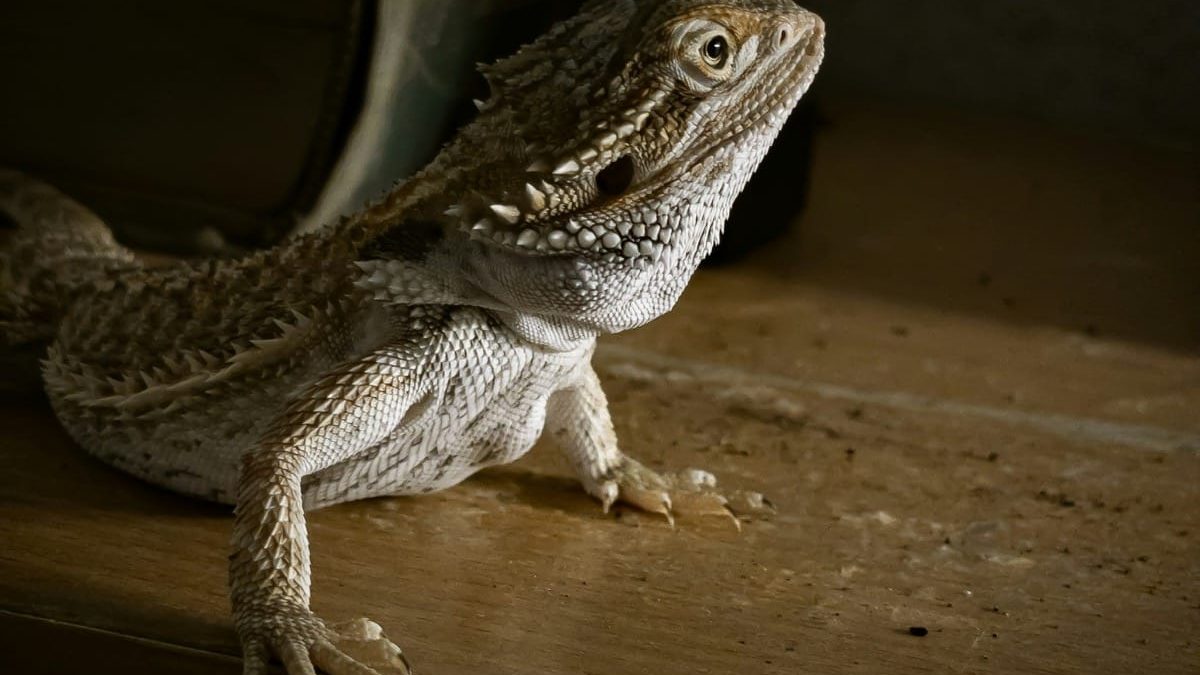
Why Does My Bearded Dragon Sleep Against the Tank?
Have you ever walked up to your bearded dragon’s terrarium only to find them snoozing soundly, pressed flat against the cool glass? If so, you’re not alone! This quirky sleeping habit is surprisingly common among beardies, and while it might look uncomfortable to our human eyes, there are actually a few reasons why your dragon might choose this seemingly precarious spot for their siesta.
First Things First: Is Glass-Sleeping Normal?
Absolutely! While bearded dragons in the wild typically nestle in burrows or under rocks for sleep, their captive counterparts often surprise us with their unorthodox slumber positions. Sleeping against the glass is a perfectly normal behavior and shouldn’t raise any immediate concerns. In fact, it can be a sign of a healthy and curious beardie exploring their environment.
Possible Reasons for Glass Snuggling
So, why do these spiky charmers gravitate towards the chilly glass when they have comfy hides and branches at their disposal? Here are a few potential explanations:
- Temperature Regulation: Bearded dragons are cold-blooded reptiles, meaning they rely on external sources to regulate their body temperature. Pressing against the cool glass can help them shed excess heat, especially if their basking area is too warm. This is particularly common during the warmer months or after a basking session.
- Curiosity and Exploration: Bearded dragons are naturally inquisitive creatures, and the glass wall provides a window to the outside world. Snuggling up close allows them to observe their surroundings, keeping an eye on potential threats or interesting sights.
- Seeking Attention: If your bearded dragon seems to sleep against the glass more often when you’re around, it could be their way of getting your attention. They might be hoping for some interaction or simply enjoying the warmth of your presence radiating through the glass.
- Stress and Discomfort: While less common, glass sleeping can sometimes be a sign of stress or discomfort in your bearded dragon’s environment. If your beardie is new to their enclosure or experiencing changes in their routine, they might seek the security of the cool glass as a temporary refuge.
Things to Consider
While glass sleeping is generally harmless, there are a few things to keep in mind:
- Temperature: Ensure your bearded dragon’s basking area is at the proper temperature (around 100-110°F) to prevent them from relying solely on the cool glass for thermoregulation.
- Stressors: Observe your dragon’s overall behavior. If glass sleeping is accompanied by other signs of stress, such as loss of appetite, lethargy, or increased hiding, it’s important to investigate the potential cause and make adjustments to their environment.
- Enrichment: Provide your beardie with plenty of climbing branches, hides, and interesting textures to explore. This can help reduce boredom and discourage them from spending too much time pressed against the glass.
Should I Stop My Bearded Dragon from Sleeping Against the Glass?
In most cases, there’s no need to intervene. If your bearded dragon seems happy and healthy, their occasional glass-snuggling episodes are nothing to worry about. However, if you’re concerned about their comfort or suspect underlying stress, there are a few things you can try:
- Adjust the basking area temperature. Make sure it’s within the optimal range and not too hot, to discourage your dragon from seeking coolness on the glass.
- Provide additional hiding spots. Offer a variety of hides with different textures and entrances to cater to your beardie’s preferences.
- Increase enrichment. Rotate toys and climbing structures regularly to keep your dragon engaged and stimulated.
- Reduce potential stressors. Identify and address any potential sources of stress in your beardie’s environment, such as loud noises or unfamiliar surroundings.
Remember, every bearded dragon is an individual with unique preferences. If your beardie seems content and healthy despite their fondness for glass sleeping, simply observe their behavior and ensure their overall well-being. But if you notice any concerning changes or suspect stress, don’t hesitate to consult a reptile veterinarian for advice.



